10 Questions and Answers on Jehovahs Witnesses
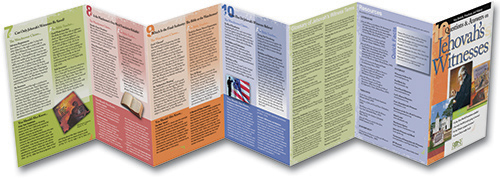
This handy eBook:
- can be read in 30 minutes or less
- compares biblical Christianity with Watchtower teachings
- helps you know what to say when a Jehovahs Witness comes knocking on your door.

How Did Jehovahs Witnesses Begin?
The Watchtower Claims
Apostasy and Restoration
Jehovahs Witnesses claim that Christianity fell into general apostasy under Emperor Constantine in the 4th century AD . To restore pure worship in the last days, God appointed Charles Taze Russell (18521916), who established the Watchtower organization to provide spiritual truth for Jehovahs true worshipers through literature such as The Watchtower and Awake! magazines.
Adventist Influence
In the 1870s Russell rejected the concept of eternal torment and joined a group of Second Adventists who taught that the wicked do not suffer in hell, but cease to exist when they die. In 1879 Russell split from the Adventists and began publishing Zions Watch Tower and Herald of Christs Presence , incorporating many Adventist beliefs such as rejection of the Trinity, eternal punishment, and the immortality of the soul. Russell also declared that Christs invisible presence (not physical return) began in 1874 and would end human government and restore paradise to earth by 1914.

The Bible Teaches
No General Apostasy
The Bible warns that in the last days some will depart from the faith (1 Tim. 4:1), but nowhere does it indicate that true Christianity would almost entirely fall away. Instead, Jesus promised that the gates of hell would never overpower his church (Matt. 16:18). The apostle Paul also proclaimed that God would receive glory in His church throughout all generations (Eph. 3:21).
Russell and the Bible
Scripture warns of a time when people will not endure sound doctrine; but wanting to have their ears tickled, they will accumulate for themselves teachers in accordance to their own desires (2 Tim. 4:3). Russell did this when he rejected the clear teaching of Scripture on eternal punishment (Matt. 10:28; 25:46; Luke 16:22-29; Rev. 20:10-15).
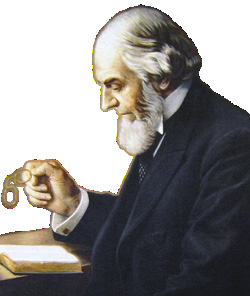
Charles Taze Russell, founder
You Should Also Know
Troublesome Teachings
- Russell shifted the date for the end of the world from 1914 to 1915, then to 1918.
- Early Watchtower publications claimed that the Great Pyramid in Giza, Egypt, foretold dates for the end of the world, based on the lengths of its passageways. When these dates failed, the measurements were lengthened to accommodate new dates.
- Russells successor was Judge Joseph Rutherford (18691942). He moved the date for the worlds end to 1925, proclaimed that Millions Now Living Will Never Die! and built a house in San Diego for the anticipated return of Abraham, Isaac, Jacob, and other ancient worthies.
- Rutherford taught that Jehovah governs his universe from Alcyone (a star system in the Pleiades cluster) and that black skin is a sign of the biblical curse on Cain.

Is Gods True Name Really Jehovah?
The Watchtower Claims
Gods Personal Name
Calling God by His personal nameJehovahis of utmost importance. In the Watchtowers New World Translation , Psalm 83:18 reads: That people may know that You, whose name is Jehovah, You alone are the Most High over all the earth. Gods true followers can be identified by their use of Jehovah in their prayers, congregational singing, preaching, and Bible study. (Many Witnesses believe that if Jehovah is not invoked in prayer, the prayer may go to some other god.)
Gods Name in Scripture
Where nearly all other Bibles have L ORD for Gods name in the Old Testament, the New World Translation ( NWT ) renders it Jehovahand even restores the divine name to the New Testament. This is evidence of the Watchtowers superiority to apostate Christendom. Proverbs 30:6 and Revelation 22:18-19 warn about those who would add or take away from Gods Word; thus, Bibles that take away Gods name by inserting L ORD where it should say Jehovah are not trustworthy.

The Tetragrammaton, Gods holy name as written in Hebrew

The Bible Teaches
Father or Jehovah?
Though the Jehovahs Witnesses insist on calling God Jehovah in prayer, in the Lords Prayer Jesus tells us to address God as Father (Matt. 6:9-13). (The name Jehovah does not appear in the Lords Prayer, even in the NWT .) For Jesus, sanctifying Gods name has more to do with honoring what it stands for than with pronouncing His name. He also shows that His disciples are now adopted into Gods family. As sons of God they now have the right to call God Father, whereas before they could only refer to Him by His formal titles or name.
Jehovah in the New Testament
The Watchtower may be justified in rendering Gods name as Jehovah in its version of the Old Testament, but not in inserting it 237 times in the New Testament. Of the 5,000 Greek manuscripts we possess today of the New Testament, not a single one contains Gods full name. (The expression Hallelujah in Revelation 19:1-6 contains a shortened form of the name, Jah.) In this respect, the NWT is guilty of adding to Gods Word by inserting His name where it doesnt belong in the text. By inserting Jehovah where there is no evidence that the New Testament writers used Gods name, the New World Translation distorts Jesus identity by creating an artificial distinction between Him and Jehovah God.
You Should Also Know
Pronouncing the Name
The original, ancient manuscripts of the Old Testament were written in Hebrewall in consonants, with no vowels. Later, when scholars added vowel points (markings to indicate pronunciation) to the Hebrew text, no one could be sure what vowels to put into Gods name, which is transliterated in English as YHWH. For centuries, when Scripture was read aloud by the Jews their custom has been to keep Gods name holy by saying Adonai (Lord) instead of pronouncing it. So, scholars chose to insert the vowel points of Adonai (Lord) into YHWH, rendering it YaHoWaH or Jehovah.

Is the Trinity Really a Pagan Doctrine?
The Watchtower Claims
Worshiping Three Gods

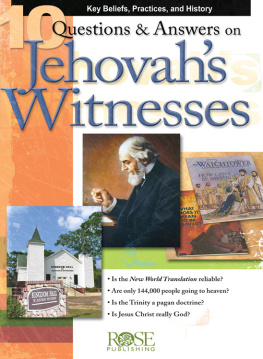
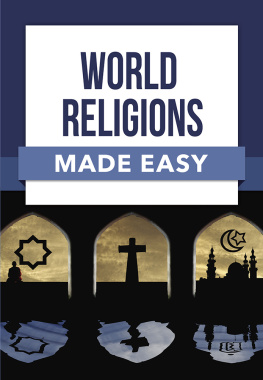

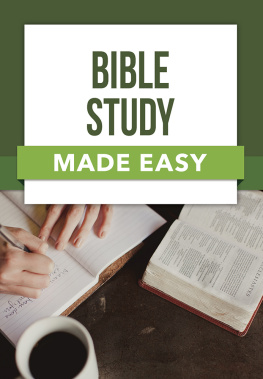
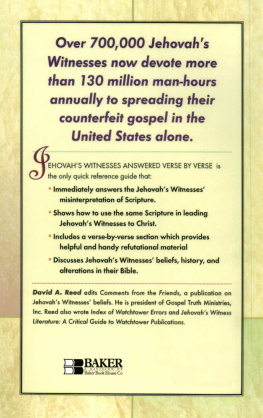
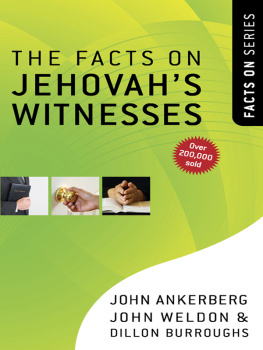
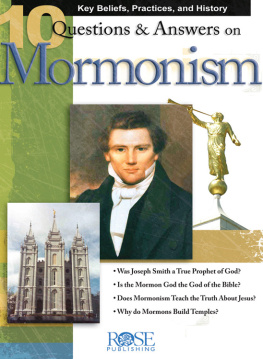
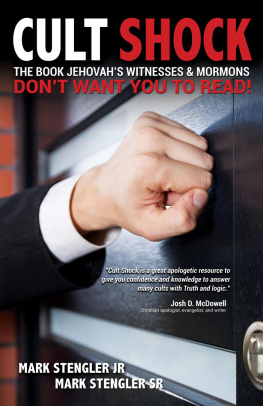
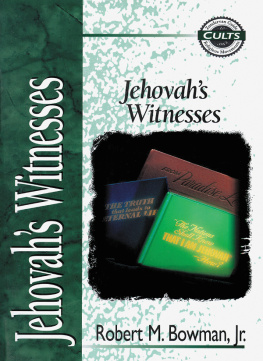
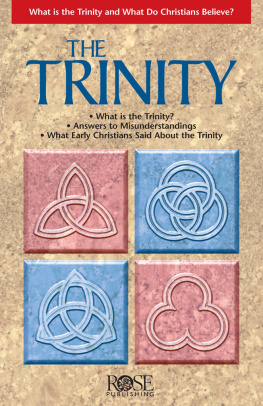


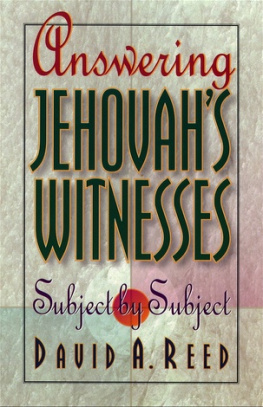
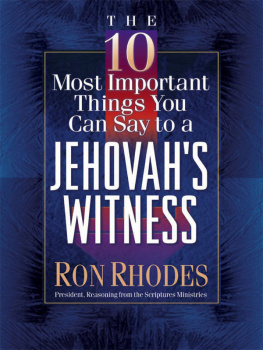


 How Did Jehovahs Witnesses Begin?
How Did Jehovahs Witnesses Begin? The Bible Teaches
The Bible Teaches
 Is Gods True Name Really Jehovah?
Is Gods True Name Really Jehovah?
 The Bible Teaches
The Bible Teaches Is the Trinity Really a Pagan Doctrine?
Is the Trinity Really a Pagan Doctrine?